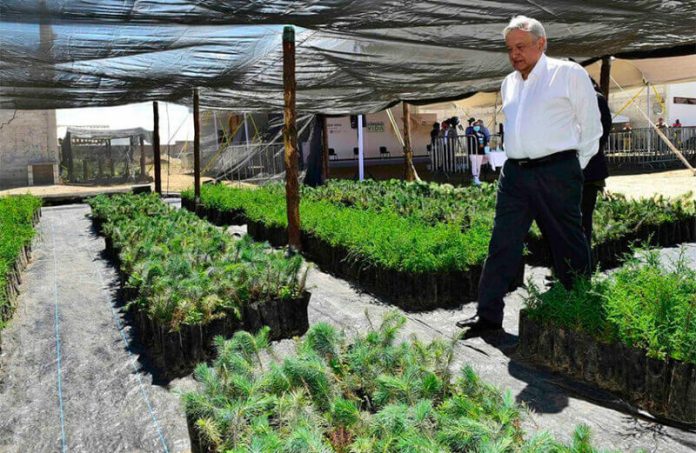Mexico has asked the United States to provide US $108.4 million a month to fund the implementation of two employment programs in Central America.
As part of efforts to attend to the structural causes of migration in the region, the United States agreed last week to collaborate on the expansion of the Sembrando Vida (Sowing Life) tree-planting employment program and the Youths Building the Future apprenticeship scheme.
The programs – signature initiatives of the federal government, albeit ones that have been allegedly tainted by corruption – will be rolled out in Guatemala, Honduras and El Salvador.
Mexico wants the United States to provide $86.4 million per month for Sembrando Vida and $22.03 million per month for Youths Building the Future, according to the newspaper Milenio, which obtained a document submitted to U.S. officials at high-level bilateral talks in Washington D.C. last Thursday.
Mexico proposed that the funding be provided via the United States Agency for International Development, commonly known as USAID. Mexico will design the programs and provide technical support to them, according to the document, entitled A Common Vision for the Region.
The federal government proposed the participation of 240,000 Guatemalans, Hondurans and Salvadorans in Sembrando Vida and 90,000 people aged 18 to 29 in Youths Building the Future. Participants in both would receive $360 per month.
Sembrando Vida beneficiaries would also have the opportunity to study at agricultural schools, according to the document. Mexico acknowledged that one barrier to the program could be participants’ inability to find land on which to plant timber-yielding and fruit trees. However, plans to facilitate access to land will be implemented, it said.
The apprenticeship scheme will provide training and financial support to young Central Americans for a period of two years. Some 5,000 workplaces are slated to participate in the program, which would likely commence sometime next year.
President López Obrador said earlier this year that the United States should issue temporary visas to Central Americans who work in Sembrando Vida for three years. But the United States has shown little interest in the proposal.
Mexico and the U.S. did, however, sign a memorandum of understanding in June to establish a strategic partnership to address the lack of economic opportunities in northern Central America.
After last week’s High Level Economic Dialogue in Washington, the White House said the United States and Mexico “will identify complementary and cooperative opportunities to improve livelihoods through the creation of jobs and opportunities in the short, medium, and long term in El Salvador, Honduras, Guatemala and southern Mexico.”
The increased cooperation between the two countries comes as record numbers of migrants stream into Mexico en route to the United States, while more than 212,000 migrants were detained in the U.S. in July after illegally crossing the border. The figure was the highest monthly total in more than 20 years.
With reports from Milenio
